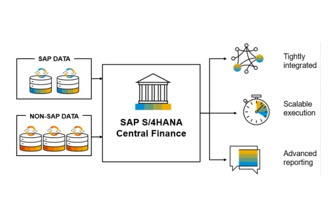Why Microlearning Is Better For You
by Michael Management
 Microlearning is a hot trend in the e-learning world, but the concept is far from unique. Although it wasn't labeled until the 1960's microlearning is how humans have always retained new information.
Microlearning is a hot trend in the e-learning world, but the concept is far from unique. Although it wasn't labeled until the 1960's microlearning is how humans have always retained new information.
When you are born, you didn't start a lesson in becoming an adult. You learned individual skills like walking, riding a bike, and balancing a checkbook until one day, you looked around and realized, "Wow, I am an adult!".
Learning new skills in small chunks like this is micro learning, and studies have found it one of the best ways for you to learn and retain new information.
Why is microlearning so popular?
There are over 4.5 billion internet users around the world, and that number is growing every day. As more and more people gain access to the web, they are taking advantage of resources like e-learning to master new skills and improve their marketability.
Microlearning has many benefits. Below you will find three reasons why microlearning is a much better approach to gaining new skills than traditional education methods.
You retain far more information with microlearning.
When you sit down to a long drawn out lesson, you can only retain so much. Add to that the fast pace of traditional education, and that college class's retention rate you spent thousands of dollars on is not very high.
One famous study by Ebbinghaus called the Forgetting Curve found that after one hour, people forget over 56% of what they just learned. This means if you learn a new skill and an hour later move onto the next topic, you are not very likely to get anything useful out of your month-long course.
In contrast, if you learn those same skills using bite sized microlearning, you will focus on only one skill for a short time. The information you learn will stick with you and allow you to immediately put your new skills into practice.
You will be far more motivated to finish with microlearning.
When you have assignment after assignment in one long course, it is easy to lose motivation. With the benefits of microlearning, on the other hand, you don't start with a considerable workload. Knowing that you can complete a lesson in a matter of days rather than months does remarkable things for your confidence in completing a course.
It is much easier to say, "I can commit a few hours this week." than to say, "I can dedicate 3 hours every Saturday for the next three months." These differences may seem small, but the effect they have on your subconscious is enormous.
That feeling of completion that comes from being done is also a massive boost to morale. This feeling will likely motivate you to take another course and continue to better your skills.
Learn what you need when you need it with microlearning.
You can learn the skills you need to know with microlearning without muffling through the information you don't need.
Let's say you need to be proficient in Python to get a new job. You could take a semester-long programming course and get that skill in the next few months, or you can take a class where the sole focus is Python and learn the skills you need in a matter of days.
Another big bonus to microlearning strategies, especially when combined with a mobile learning management system, is that you can learn at your own pace. You can work quickly if you easily understand something and slow down and repeat a lesson if it doesn't make sense.
Some popular microlearning courses.
In many ways, microlearning is like customizing your education to fit your unique needs. Learn on your own terms by choosing the skills you need and completing courses at your own pace.
Here is a list of a few popular SAP courses from our microlearning platform:
- SAP S/4HANA Basic Skills - This is our most popular hands-on SAP course for beginners. Learn the fundamental skills you need to work in any SAP job.
- Introduction to SAP Configuration- In this course, you will learn all of the fundamentals to implement SAP. With many of the largest employers operating SAP, this skill is highly marketable in the job market.
- Basic SAP Administration – This course is an excellent start to a new career in SAP System Administration.
What skill are you going to learn next?
Sign up for one SAP course by clicking the link above or register to preview all SAP elearning courses we offer.
by Michael Management
More Blogs by Michael Management

Unlock Financial Precision: The Critical Role of...
Mastering Document Splitting in SAP Central Finance: Essential Ins...

Unlocking Success: The Strategic Imperative of Group...
Why is Group Reporting Critical for SAP Central Finance? Masterin...

Kickstart Your Career: Mastering SAP Inventory...
SAP inventory management is an in-demand skill set from large companie...
Related Blogs

How To Manage Staff When You Are Finally Together Again
When COVID-19 abruptly changed the world, businesses had to adapt. Rem...

Time To Change Out of Your PJs - Getting Back to Work...
When COVID-19 abruptly changed the world, businesses had to adapt. Rem...

Introducing Our Top Student Thomas Golda
Q: In August, you were our #1 student, earning nearly 6,000 skills points. That...
.png)

